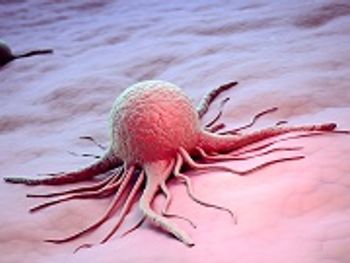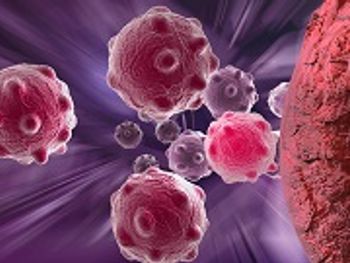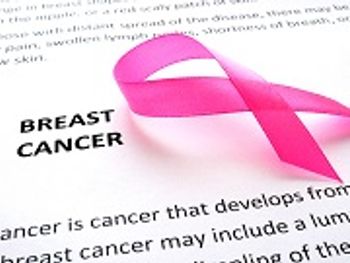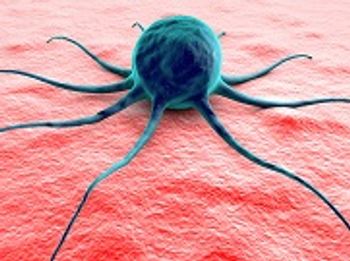
Exposure to BPA observed to increase signaling that caused cancer growth.

Exposure to BPA observed to increase signaling that caused cancer growth.

Top news of the day from across the health care landscape.

German shepherds undergo training to detect breast cancer through smell.

Top news of the week in oncology and cancer drug development.

Overexpression of protein reveals why breast cancer spreads quickly.

Breast cancer cells may use reelin protein to evade the immune system.

Study identifies 2 immune system molecules that may play a key role in drug-resistance.

The cytokines interleukin 1 beta (IL1β) and tumor necrosis factor alpha (TNFα) help the spread of drug-resistant cancer.

More than 3000 patients with breast cancer have received radiation with the Xoft System.

Epalrestat could prevent metastasis in patients with basal-like triple-negative breast cancer.

High consumption of isoflavones reduced all-cause mortality in patients with breast cancer by 21%.

Repurposed drugs may provide new therapies for cancer.

Isoflavone supplements may influence outcomes among patients with breast cancer.

Most models were cancer-free within 6 weeks of treatment with selenomab-drug conjugates.

Next-generation antibody treatments effectively deliver cytotoxic drugs to tumors.

Top news of the week in oncology and cancer drug development.

The addition of abemaciclib to fulvestrant appeared to effectively improve progression-free survival in patients with breast cancer.

The addition of abemaciclib to fulvestrant appeared to effectively improve progression-free survival.

New research indicates that high consumption of certain dairy products may either increase or decrease the risk of developing breast cancer, depending on the food.

High yogurt intake may protect against breast cancer, while processed cheeses may increase cancer risk.

Eli Lilly and Company recently announced positive late-stage results in its clinical trial testing a combination of its experimental breast cancer drug and another widely-used treatment.

The risk of a second cancer remained high even 30 years after treatment.

Progression-free survival with IMMU-132 increases from an average of 3.5 months to 16.6 months in patients with breast cancer.

Mylan gains global licenses for its biosimilar to trastuzumab (Herceptin).

Improvements in breast cancer patient quality of life and mortality seen over last 30 years.